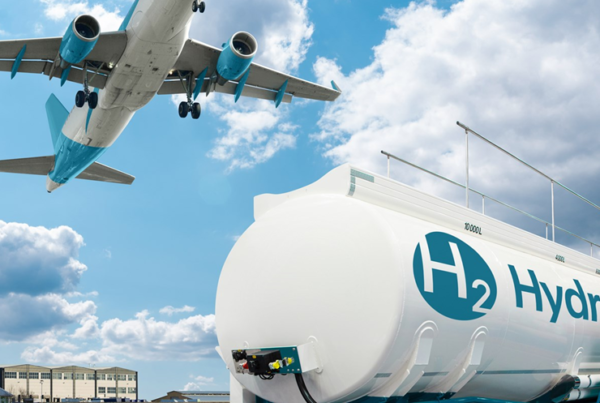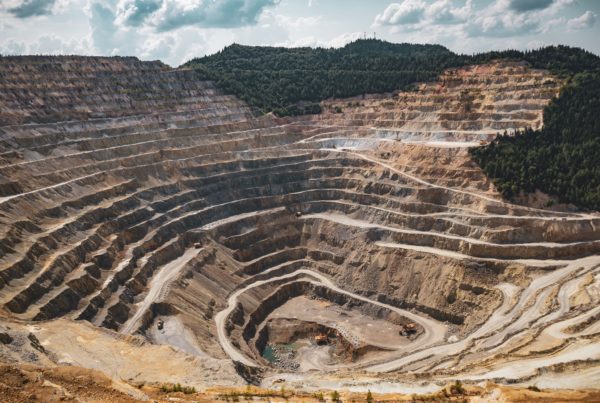
The Middle East and Africa are well positioned to become major future suppliers of sustainable energy to global markets. But to realize this potential, the region requires stabilizing regulations, significant investments and technological innovation. These were the key findings of the second Middle East and Africa Energy Week, which Roland Berger accompanied as knowledge partner.
The latest in the Energy Week conferences, a series of events focused on different geographical regions and hosted by Siemens Energy, brought together industry, political and society leaders from around the world to tackle the increasingly serious challenges in the field of energy. During the conference, participants were asked about the importance of a set of key energy priorities and what progress had been achieved towards the energy transition so far. Based on their responses, Roland Berger calculates that the Middle East and Africa score 26 percent in the Energy Transition Readiness Index (see below). This is a surprisingly low score given the enormous investment resources in the region and recent increased activity by partners.
“The Middle East can play a key role in addressing the new priorities of Europe’s energy transition.” Pierre Samaties – PARTNER – Dubai Office, Middle East.
Energy Transition Readiness Index
Participants in each session at the Energy Week completed a short survey on the session’s topic. The Energy Transition Readiness Index is calculated based on responses from up to 400 respondents in each session. Participants were asked for their expert opinion on the respective importance and progress achieved so far on each of 11 energy priorities, from “driving exit strategies for coal” to “resilience of energy systems”. The final overall perceived readiness score as regards the energy transition towards net zero in the Middle East and Africa is 26 percent.
Focus on green hydrogen
Green hydrogen and its derivatives have enormous potential for the Middle East in particular. No less than 46 green hydrogen projects are already underway in the Middle East and Africa, with Oman (11 projects), the United Arab Emirates (9) and Egypt (7) leading the way. Key recent investments include the EXPO 2020 electrolyzer developed by DEWA and Siemens Energy, a small (1.25 MW) pilot.
Green hydrogen is also a “good fit” with the region’s capabilities – the region is particularly strong in terms of its potential for renewables, its existing export infrastructure and its financing resources. Furthermore, hydrogen could be the key to decarbonizing the region’s economies, which are currently strongly focused on fossil fuels, and to decreasing the reliance on income from fossil fuels, especially in the Middle East.
Solving the energy trilemma
Discussions around energy in Africa have focused in recent decades on the “energy trilemma” – the need to find the right balance between affordability, reliability and sustainability. Of these three factors, access to energy remains perhaps the most critical factor for Africa. The disparity between different countries across the continent means that tailormade solutions are called for, from bespoke financing options and decentralized energy applications to intercontinental collaboration over transmission grids.
In this context, the energy transition represents a significant economic opportunity for the continent. However, the benefits must be distributed throughout society. Educating and upskilling of the population can form a basis for this, enabling broad participation in the economic opportunity. The energy transition is a unique opportunity to drive broad socio-economic development. At the same time, the specific needs of each country must be considered in order to fully tap the societal potential and ensure no one is left behind.
CO2 reduction – perception vs. reality
The Middle East and Africa Energy Week identified a significant gap between perceptions and reality when it comes to what has been achieved so far on cutting emissions. Conference participants on average estimated that the region’s emissions had fallen by 23 percent between 2005 and today, with only around one-third correctly identifying that emissions have not fallen at all. In fact, emissions grew by around 50 percent between 2005 and 2021.
In the Middle East this increase was driven by heavy reliance on oil and gas and high standards of living. In Africa the drivers include population growth, underdeveloped infrastructure and limited options for financing sustainable solutions. Overall, the Middle East and Africa make a relatively small contribution to global emissions: Seven percent of global CO2 emissions stem from the Middle East and just three percent from Africa. Yet, the region suffers disproportionately from the consequences of climate change, as witnessed by the recent unprecedented heatwaves and increasingly frequent severe weather events.
Ranking energy priorities – and current progress
Overall, conference participants considered all 11 priorities relatively important for achieving the energy transition goals. The factor with the greatest potential impact, they believe, is speeding up the expansion of renewable energy. This is an area where technology is already mature and implementation therefore relatively straightforward.
In the Middle East, key economies have set themselves ambitious targets for clean, renewable capacity. For example, Saudi Arabia is looking to scale up the share of gas and renewable energy in its energy mix to 50 percent each by 2030 and aiming for installed capacity of 59 GW by the same year. Similarly, the United Arab Emirates has set itself ambitious targets for 2050: to improve energy efficiency by 40 percent, reduce emissions from the power sector by 70 percent and increase the share of renewables in the energy mix to 44 percent.
Conference participants reported that progress on the energy priorities overall was fairly advanced, although dedicated efforts would be needed to achieve the 2030 climate targets. The most progress has been made on accelerating renewables and achieving a fair energy transition. Participants also perceive the decarbonization of industry to be advancing well. By contrast, progress on power-to-x solutions has been slow so far, evidently due to the novelty of the technology. Focusing on this area and the export of low-cost green hydrogen from the region is essential for the global decarbonization effort.
Policy support, investment and technological innovation
The conference participants identified three key areas where action is required: policy, funding and technological innovation. The energy transition needs a clear, stable policy framework supporting it, as business and financial institutions often have to make long-term, irreversible investment decisions. Building the required infrastructure for decarbonization also requires front-loaded funding at the development stage of projects – this is currently readily available in the Middle East, especially for renewable energy projects. Technological hurdles exist for emerging technologies such as carbon capture and storage and long-term energy storage. As yet, technology is not commercially available on the scale required to facilitate the energy transition. Knowhow is also critical for emerging technologies such as long-term energy storage, power-to-X and sector coupling.
Energy priorities and measures to be taken to accelerate the transition:
- Drive exit strategies for coal
Decarbonization requires a step-by-step phase out of power and heat generation from coal. Strategies must manage this while simultaneously ensuring a secure supply of power and heat. Coal’s role in the transition to carbon neutrality must be clearly defined within these strategies.
SOURCE: Roland Berger
Read the most up to date Fuel Cell and Hydrogen Industry news at FuelCellsWorks




